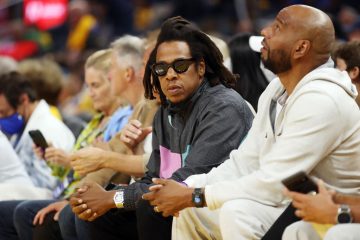
Just as you can sense when someone’s on edge, so too can you feel when a person’s at total ease with themselves. A kind of blissful peace that in turn puts you in a state of calm. You could sit in silence if you wanted; not that Shingai and I were doing so. Her story is far too interesting for that, and we didn’t want to waste a minute, as we chatted away on a sunny rooftop balcony overlooking the Thames.
There’s a reason why Shingai exudes such serenity. The Lewisham-born, Zimbabwean-British singer, and former Noisettes frontwoman, has been taking time to explore her African Bantu roots and trace her family and personal lineage. The term ‘find yourself’ is often superficial in recent years, but in Shingai’s case it’s apt.
“When we were in lockdown, around 2020, me and my siblings moved back to my mum’s in Kent. I started going through all my old clippings and Dictaphone tapes – some of my stuff from Team Shing,” she recalls, affectionately.
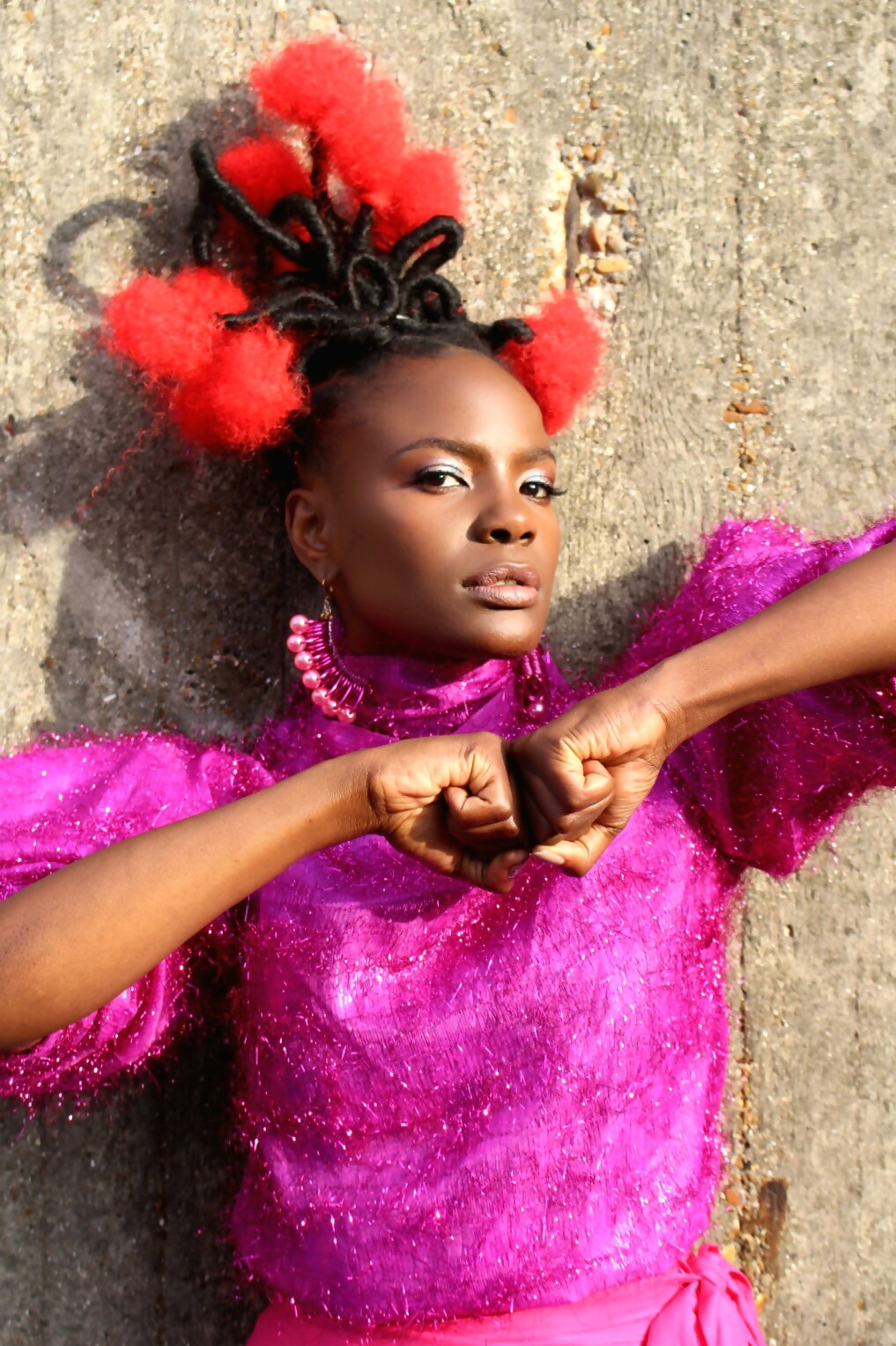
“Some of the stuff just floored me, or I’d explode into tears. I was like, ‘Oh my God, what? You were actually going through all of that?’ ‘Okay, let me let me help you with that little Shing. Let’s finish that song; let’s tweak it, update it, and really go for it.’”
Much of her solo work to date – since the Noisettes played their last show in 2019 – has embodied this sense of personal retracing. Her first single is not only called ‘Coming Home’ but bounces melodically beneath her distinctively smooth vocals, which beckon: “Something keeps calling me / Calling me right back home / Hold me tight, I won’t fight / This is where I belong”.
That’s not to say Noisettes didn’t bear some of the hallmarks of Shingai’s heritage – only that now she feels freer than ever to express it. “I think folding and incorporating my life and my African Bantu roots into music has been something I’ve been doing, but I wasn’t conscious I was even doing it,” she says, before referring to the track ‘I WE’ off the band’s 2007 debut album, What’s The Time Mr. Wolf? as an example.
“Nobody asked at that time what language I was singing. But obviously I was singing in Shona; [the word ‘iwe’] is like a call to confidence. It’s a word that gets thrown around in our family a lot when people are really passionately debating something.”
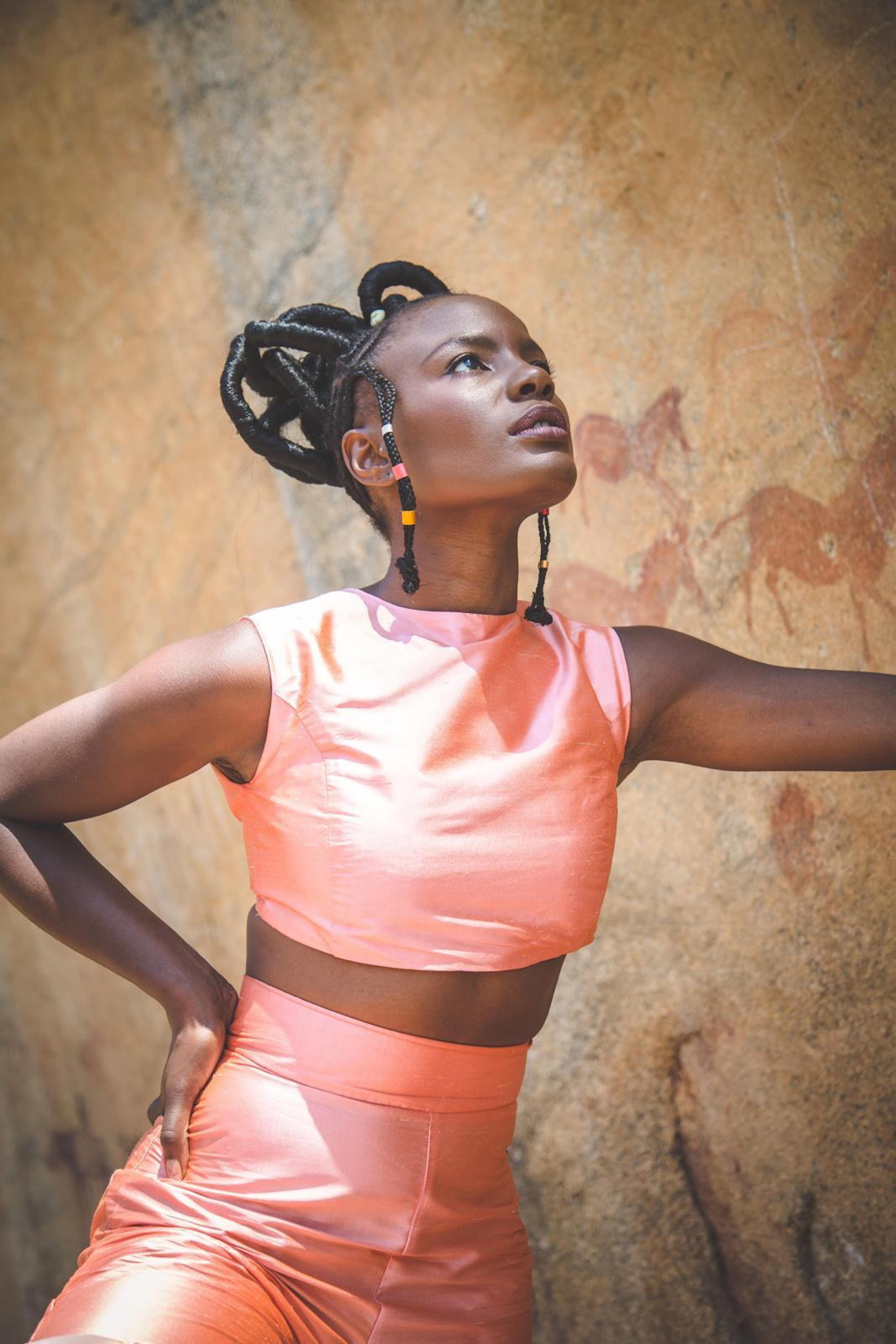
“I do remember whenever I would mention how my Bantu roots intersect in the type of music I was playing, and in the way I dress – my love of colour and flamboyancy and not following rules – I began to feel it wasn’t really encouraged for me to mention it.”
Shingai’s 2020 debut full-length album, Too Bold, is therefore another poignantly titled offering; the reclamation of a phrase that was often levelled at her, during a time when young, black female singers were told not to flaunt their identities. The record’s fluttering intro even asks: “What if I told you that I get low? / There might be a Shingai that you don’t know / What if I told you that I’ve been told I’m too dark, too dark / Too smart, too bold”.
This new side to Shingai is made all the more profound by the fact that not only has her solo work been released through her own independent label, Zimtron Records, which she established in the spring of 2019, but that she’s also now no longer claiming any royalties from Noisettes.
“That’s a massive statement,” she says, and due to “lots of different reasons”, without giving too much away, other than saying it’s “to do with the setup of the way things were, with our manager and members of the band.”
“Certain people were done the dirty along the way,” she adds. “I want to be attached to a fresh version; whenever [Noisettes] come back together, and if we ever do a record in the future, it has to be a completely new team. And a fresh approach – even if it’s less numbers, [it’s about] doing things more fairly.”
Certainly, Noisettes have experienced such “numbers” before, especially after their sophomore album, Wild Young Hearts, became a top ten chart hit upon its release in 2009, containing the wildly rememberable ‘Don’t Upset The Rhythm (Go Baby Go)’, which reached number two in the singles charts. The long-lasting popularity of the album’s third single, ‘Never Forget You’, has also cemented the record’s place among UK indie albums at the turn of the 2010s.
With its nostalgic sound and lyrics, ‘Never Forget You’ has also had a resurgence on TikTok, acting as the soundtrack to a trend on the platform in which people pay tribute to people they knew a while ago. The track has now been used in over 627,000 videos created on TikTok (with over three billion views on the platform), plus over 100 million streams on Spotify – a popularity that stands as a testament to the band’s longevity.
For those not yet versed in the Noisettes’ story, the band was first spawned from the creative cacophonies of Shingai and her friend and guitarist Dan Smith, after they met at Croydon’s BRIT School – even if Shingai had originally studied Theatre and Performance there, before switching to Music (“I feel like drama people are the geekiest, reciting Stanislavski and Chekhov, it wasn’t as exciting as I thought it was going to be”).
@yxsmnn_ #neverforgetyou #noisettes ♬ original sound – Princelyrics
Originally called Sonarfly, they were, Shingai describes, ahead of their time in being “genre fluid”, bouncing from “an existential jazz or spoken word moment into a really solid funk beat” – an early indicator of Noisettes’ ability to mix up sounds and genres.
Sonarfly would win a Battle of the Bands contest in the early 2000s, which was watched by representatives from three major labels – all of whom wanted to sign the champions. But in her first taste of the industry, this would put Shingai in an awkward situation.
“We started having meetings with these labels and it soon became clear that actually they were saying [to me], ‘The deal’s yours, but you’ve got to get rid of the band, ditch the guys.’ At this point, I’d known them since I was 16, they were my best mates.”
Against the inevitable chorus of people telling her otherwise, and with a firm sense of loyalty, Shingai said no. “It would be another four or five years before I ever got offered another record deal. I just went back to normal jobs like teaching.”
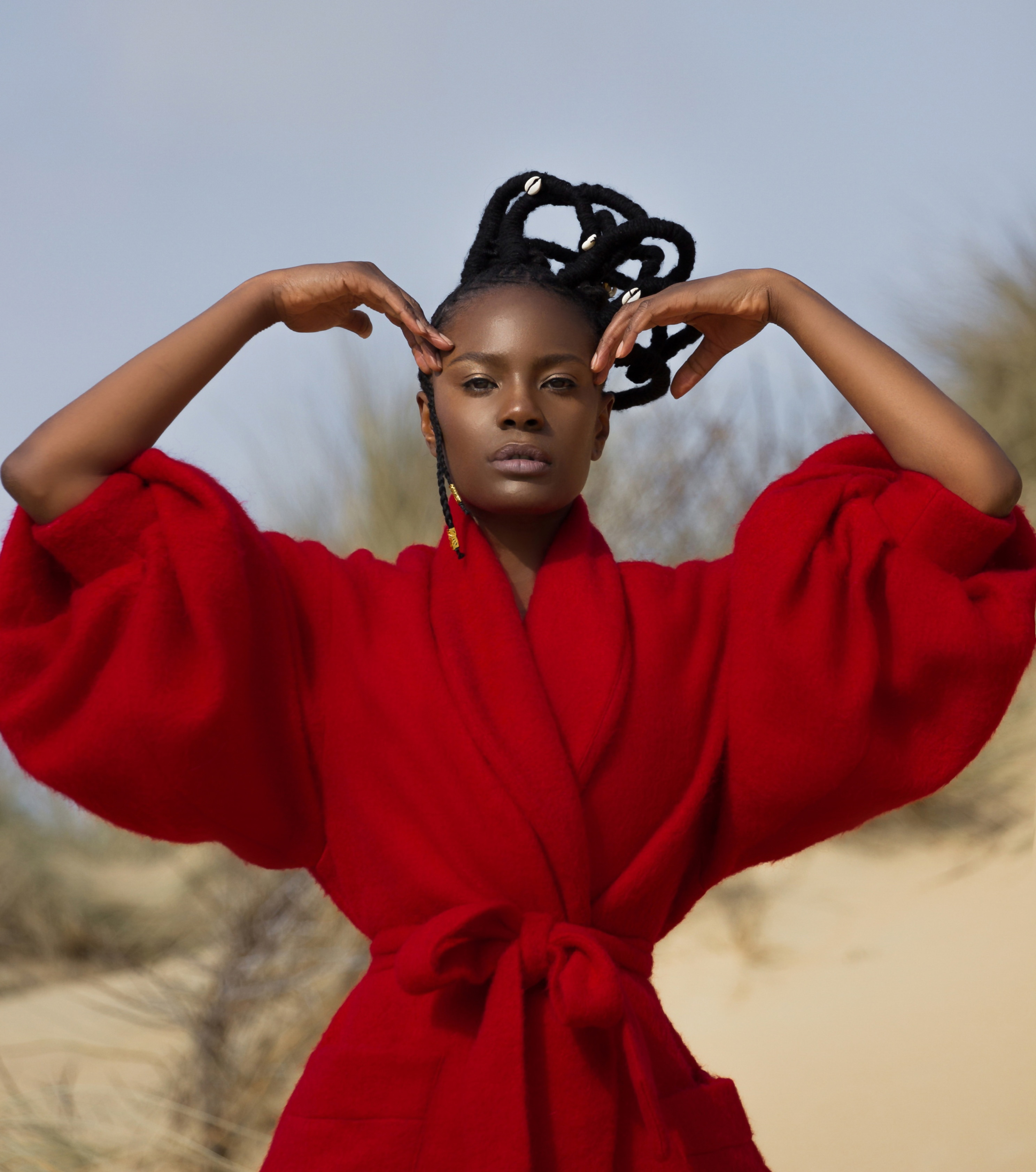
However, there was a silver-lining. “It meant that Noisettes,” as they then became, “got to be really, really tight. I ended up having to play bass because we lost our bass player.”
Yet despite being “even more of a powerful trio” as a result, the band still “couldn’t get signed in England for love nor money”. Why was that, I asked?
“They weren’t ready for a black female, playing bass, playing guitar; and having a really confident understanding of real music from punk to funk to rock n’ roll,” says Shingai. “I think it probably made me a challenging signee for a record label that wanted to manufacture a female.
“Most black females at that time would be offered something, with someone saying, ‘This is the direction we’re gonna go in, you’re gonna sing Soul, or really cheesy RnB’ – not even the good stuff like they do in America, you were gonna be a poor man’s version of that. It was like, ‘If you’re lucky, you can aspire to being as huge as Jamelia or Beverly Knight.’… I thought the songs I was playing in my band were more exciting than some of the music they tried to steer me down.”
Remarkably, a less prescriptive American industry at the time soon came calling – but only by sheer fluke. After “an amazing lady called Jolene Cherry” saw a post-gig picture of Noisettes, with Shingai hanging upside down from a merry-go-round whilst strumming a guitar, the longstanding A&R executive at Motown immediately saw something in them and invited them to play at a showcase in front of Doug Morris, the then chairman of Motown’s parent group, Universal.
“It sounds like a fairy tale, but we were on a flight to L.A the next week, on Sunset Strip; and had keys to a rental car, driving round L.A…. It was very surreal. We all had boyfriends and girlfriends as well at the time. I think everyone was dumped within about a week…
“Just like that, I’d gone from having my little [Volkswagen] Beetle being broken into by crackheads outside the Dogstar [pub in Brixton], a week before, and not having enough money to fix it, to ending up doing that show.”
And so would begin their whirlwind journey into the industry, garnering fans and plaudits along the way. There would be Coachella in 2007, Glastonbury in 2009, tours of Japan in 2012, to name just a few worldly affairs. And of course there are the three Noisettes albums thus far, all of which Shingai looks back on fondly.
“I think we were so lucky, honestly, that we made three records we really, really wanted to make… I’m so grateful and proud of the music we made over that decade or so together. I’m proud of those three albums.”
There wasn’t an acrimonious split of the band once the heyday of those three records subsided. Dan, for instance, got married and moved to Norwich, and still appears on Shingai’s 2019 record Ancient Futures, whilst the band’s drummer Toby Couling also features on Too Bold. “This whole thing of like, ‘She’s gone solo, and she’s killed the band’, is all drama,” Shingai says. “I think it’s a bit of a passé thing that was invented to give some sort of gravitas to help a lady be able to make it on her own after the band.
“But,” she adds, reflecting on where she stands currently, “It’s almost like, maybe I had to be brave enough to show that I could do it without that huge, massive leviathan of a team – with the Noisettes, with the band and all that stuff… Now, I just have to take it to the next level because the world demands it.”
Indeed, as she smiles warmly and eats some crisps, politely offering me some on a few occasions, I can’t help but feel that this is a woman being true to herself. And true to her name, too; the name Shingai translates from Shona as ‘being brave’ and ‘being bold’.
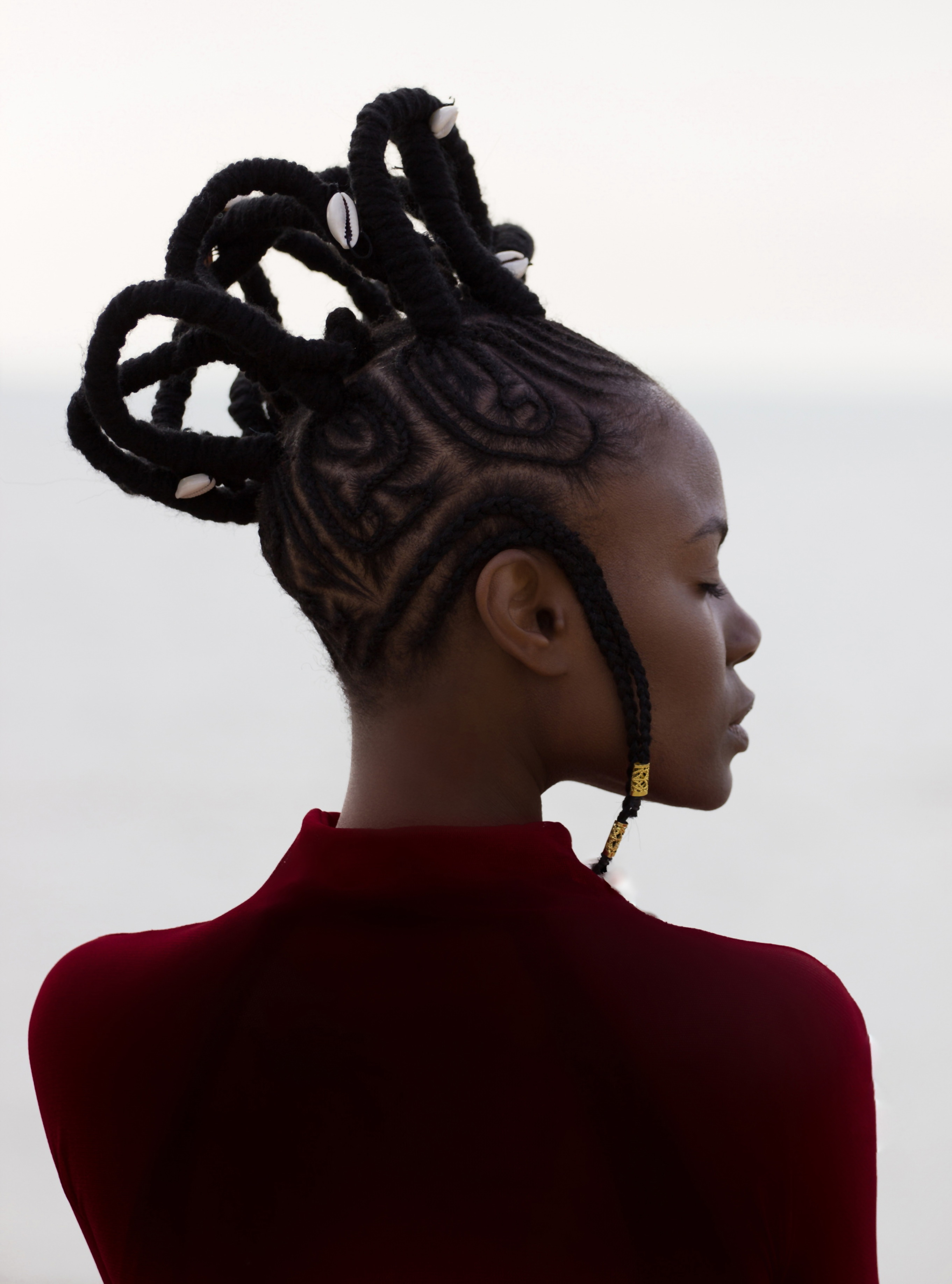
The child of freedom fighters, whose mum arrived in the UK in exile – “if she didn’t do that, I might not be here or might not have been born” – she’s proud of her history, her achievements, and what’s to come.
Part of her recent cause for celebration was her involvement in Grace Jones’ lauded Meltdown festival at Southbank earlier this year, which Shingai admits she’s “still buzzing” from, especially as it celebrated and promoted her in her own solo light.
“The whole build up was amazing. Being an independent artist, and not having that massive machine around you, you don’t have the budget to put posters up. But if you’ve got your name on a poster next to amazing people like Grace Jones and Nova Twins, it’s amazing – it was really incredibly curated.
“And as someone who used to dance around – in God knows what crazy, homemade outfits – to Grace Jones records as a kid, it didn’t really get much better than that.”
And just as Grace Jones, a strong, black, female figurehead – “someone who,” Shingai describes, “can’t be boxed in” – used her curatorial position to shine a spotlight on fellow artists with African roots, (like Beninese singer Angélique Kidjo and Senegalese musician Baaba Mal), so too is Shingai conscious of doing similar.
For her track ‘No Fear (Birthright)’, for instance, with Zimbabwean producer Verseless, the music video was decidedly shot in Zimbabwe. Specifically, in the Matopos hills, just south of Bulawayo.
“I’ve always wanted to shoot something there,” Shingai says. “I was having these dreams of doing so. It was one of the most challenging things I’ve ever had to shoot, but we managed to shoot the ‘No Fear’ video there – and empower Zimbabwean creatives who wouldn’t have had the chance to be paid before.
“I’ve always found there’s a lot of responsibility to hopefully bring some people up, bring voices that are under-sung and unheard with me.”
As someone who’s been through the rigmarole of the industry, both with acclaim as part of Noisettes and now carving her own route as a solo artist, that’s now certainly in Shingai’s capacity. And credit to her for making it one of her aims – all whilst being as self-aware and at ease as she is.


